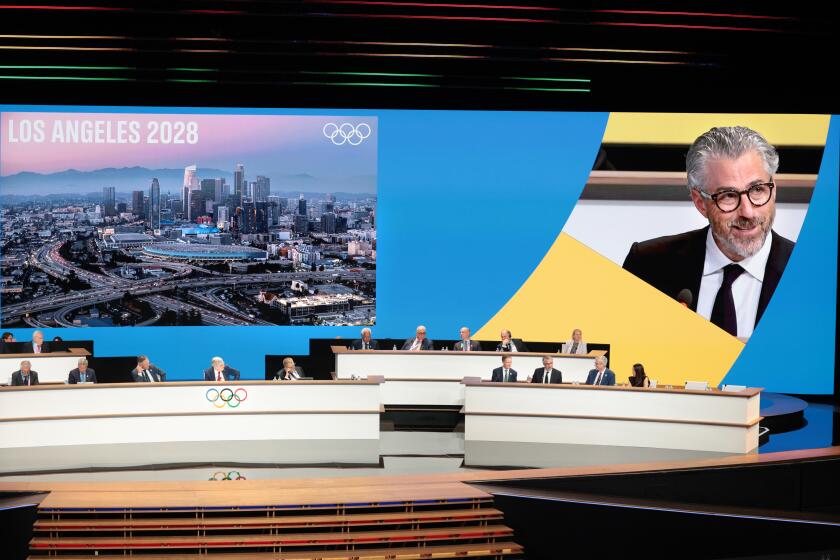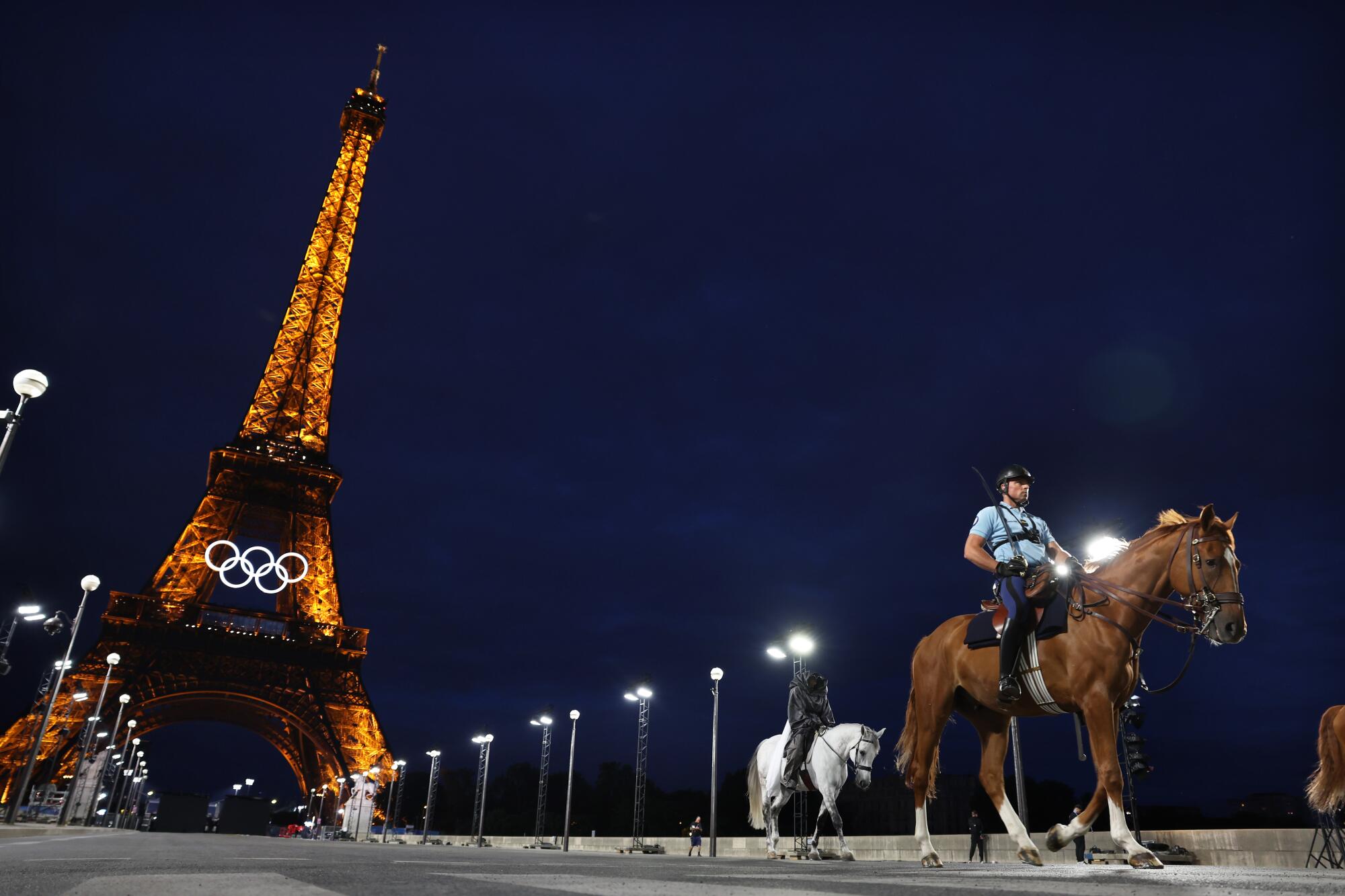
- Share via
PARIS — Soldiers patrol along the Seine River, dressed in camouflage and blue berets, big rifles slung over their shoulders. The Police Nationale stand guard at checkpoints, turning away people who want to stroll at the water’s edge.
A four-mile stretch of this iconic river, in the heart of the city, is on lockdown.
The 2024 Paris Olympics will stage an unusual opening ceremony here on Friday. In a departure from the usual stadium show, dancers, musicians and athletes will cruise down the Seine on a flotilla of boats as hundreds of thousands of spectators watch from bridges and grandstands.
With a glowing Eiffel Tower in the background, it promises to be visually stunning. Also, a massive security headache.
“If there is one event that is under pressure, it’s the Olympic Games,” said Christophe Dubi, an International Olympic Committee executive. Given the threat of terrorism, officials must be “on the front foot, on tiptoes, being brave.”
The gamble seemed worth it to those who planned the Games and sought to transform Paris into a vast playing field — building temporary venues at the Château de Versailles, Grand Palais and other landmarks.
Still, the proposal for a waterborne opening startled President Emmanuel Macron.
“And I can tell you at the very beginning,” Macron said during a reception at the Elysee Palace this week, “it seemed to be a crazy and not serious idea.”
The challenges were obvious. Organizers needed to protect 90 some boats departing from Austerlitz bridge, easing past the Ile Saint Louis and Ile de la Cite on a 3.7-mile route with apartment buildings, hotels and offices pressed close on either side.
“Like all projects, there’s the dream, which I loved,” Thomas Jolly, the ceremony’s artistic director, told the Olympic news service. “And then there’s the reality.”
1
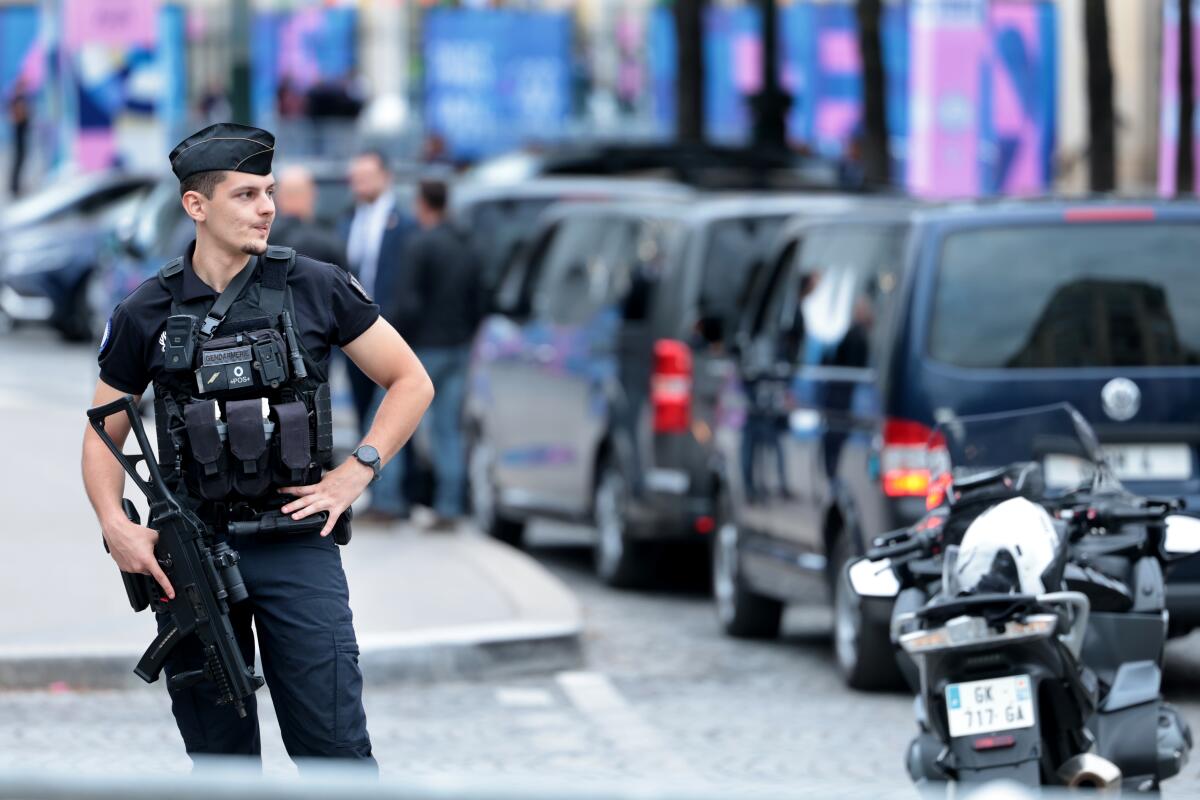
2
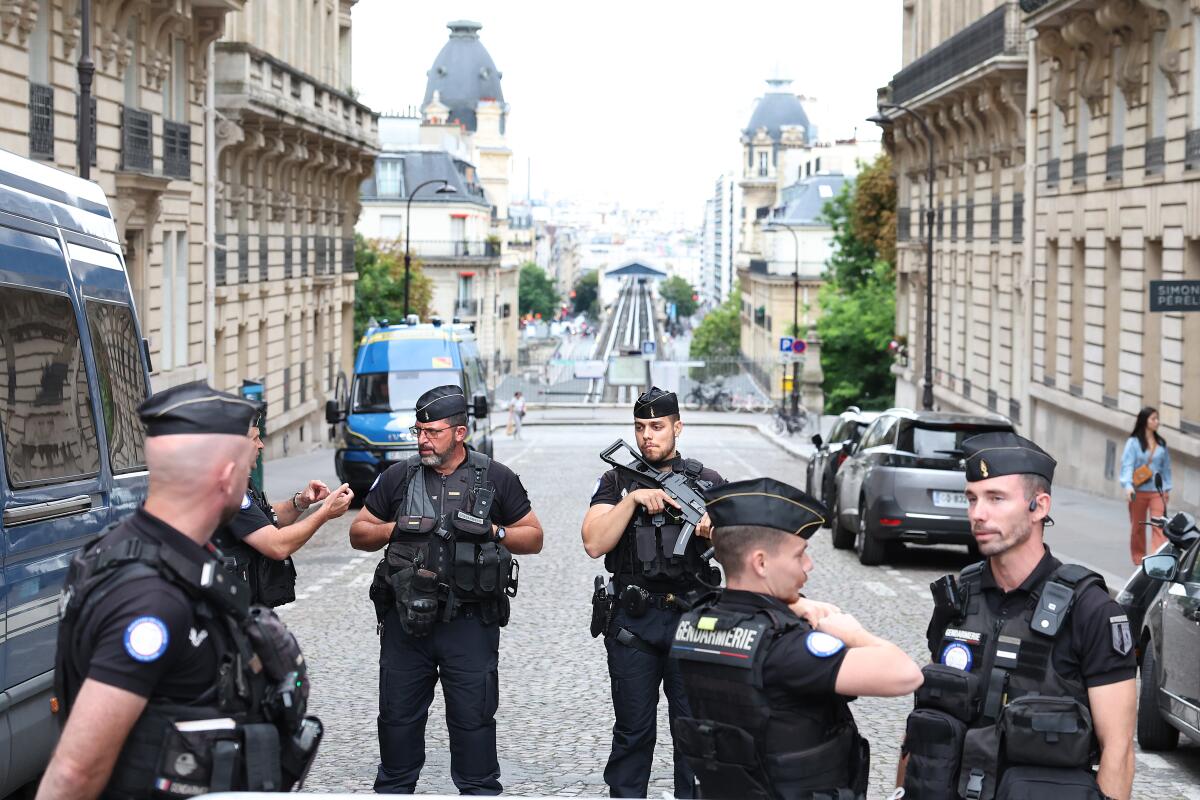
1. A police offer patrols on a street in Paris three days ahead of the official start of the Paris Olympic Games. 2. Police officers talk to one another on a street in Paris ahead of the start of the Summer Games.
French Olympic officials, already on edge because of the Israel-Hamas war and resulting street protests, downsized their plans in early March, cutting a potential 600,000 ticketed spectators to 326,000.
Later that month, after Islamic terrorists claimed responsibility for an attack that killed more than 130 people in a Moscow concert hall, France raised its terror alert to the highest level. Macron acknowledged a contingency plan to move the ceremony to the Stade de France national stadium.
Regardless, organizers pushed ahead.
“No country has informed us that they do not want to take part,” Interior Minister Gerald Darmanin told the French Senate. “They have confidence in our organization.”
Beginning last week, law enforcement established a multilayered perimeter around the Seine using a system created after the 2015 attack on the offices of the satirical magazine Charlie Hebdo that left 12 people dead.
“In practice, it’s actually straightforward,” said Mike Duignan of Trivandi, a consulting firm led by former top executives of the 2012 London Olympics. “There are really well-established techniques on how to do it.”
LA28’s new executive director once helped house thousands of troops in Afghanistan and even he finds the logistics of hosting Olympics far from easy.
The French have enlisted reinforcements from dozens of countries — and the Los Angeles Police Department — to deploy a reported 35,000 officers and 10,000 soldiers on the streets. Vehicular and foot traffic have been limited; some subway stations have been temporarily closed.
Residents who live and work in those buildings along the river have been issued security cards.
“Movement will be possible but very restricted,” officials have warned them. “Pat downs and bag searches are mandatory.”
In separate incidents over the past week, French authorities have arrested two men suspected of plotting to disrupt the Games, according to the Associated Press. Cyberterrorism has also been a concern.
Security will intensify on the night of the ceremony, with Darmanin announcing a closure of Paris’ airspace within a 90-mile radius. An additional 10,000 police will be added to guard the river and the Trocadero, where participants will disembark for formal rites.
Despite the recent assassination attempt on former President Trump, Duignan believes large, open-air events can be safeguarded. But there might be a price to pay.
“The question is, to what extent will it dampen the vibe and the party spirit?” he said.
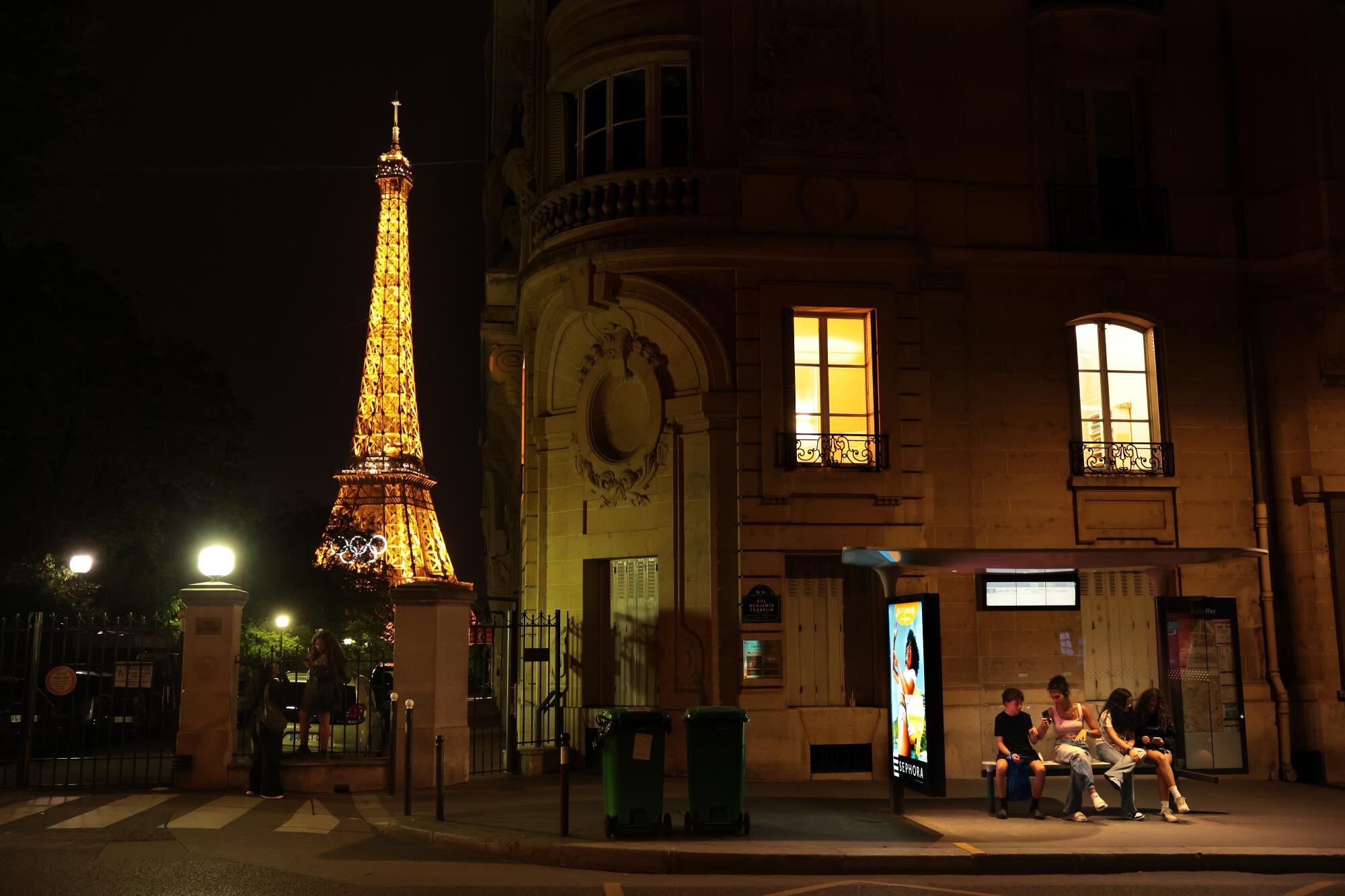
Parisians have grumbled about restraints on their ability to move freely, with a local taxi driver telling politico.eu: “It’s unbearable, we feel like prisoners.” Athletes participating in the ceremony seem to have a different opinion.
American skateboarder Jagger Eaton said he thinks arriving on boats “is going to be unbelievable.” A member of the French contingent did not seem worried about safety.
“Everybody wants to experience this moment,” handball player Luka Karabatic said, “because it will be unique.”
More to Read
Go beyond the scoreboard
Get the latest on L.A.'s teams in the daily Sports Report newsletter.
You may occasionally receive promotional content from the Los Angeles Times.

